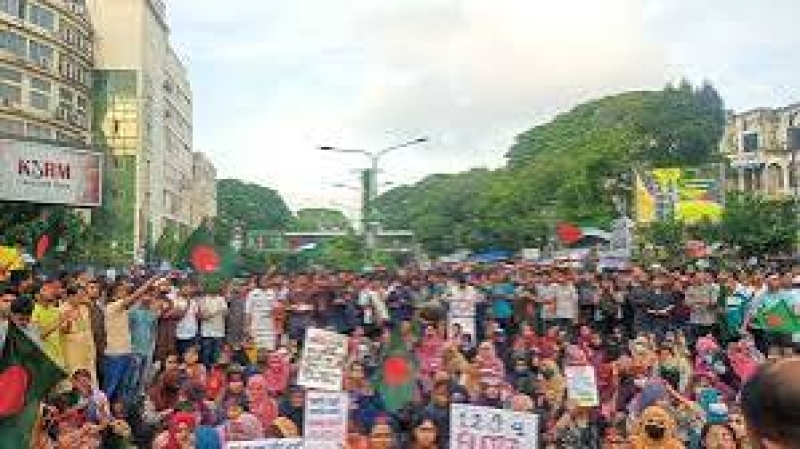- US Supreme Court Voids Donald Trump Global Tariffs |
- India looks forward to engaging with new govt in Bangladesh |
- No more running after doctors, services to reach doorsteps |
- ‘Revolutionary’ shift in economy, stock market soon: Amir Khashru |
- Stocks end week sharply lower as DSE, CSE indices tumble |
Why is the govt turning against quota protesters?

The quota reform movement has taken a troubling turn as the government appears to be shifting towards confrontation with protesting students. Until recently, the government had generally refrained from obstructing legitimate demonstrations. However, recent events, particularly on Sunday, marked a stark escalation. At midnight, students took to the streets, met with aggression from Chhatra League at Jahangirnagar University, Chittagong University, and Cumilla University. Vigilant Chhatra League presence at Dhaka University further heightened tensions.
Monday afternoon saw further clashes at Dhaka University, where helmeted Chhatra League members engaged in violent exchanges of bricks and stones with dispersing students, resulting in over a hundred injuries requiring hospitalization. Past incidents indicate a pattern where such movements are quelled through severe repression and campus closures.
The protest stems from a High Court ruling reinstating quotas in public service jobs, reigniting grievances that first flared in 2018. Beyond the debate of merit versus quota, youth employment statistics paint a bleak picture. Each year, 1.8 to 1.9 million young Bangladeshis enter the job market, yet only around 70,000 secure government positions annually. This stark reality fuels demands for quota reforms across all government sectors, not just Class I and II posts.
Many young people, unable to secure government jobs, seek livelihoods in the private sector or migrate overseas. The syndicate's exploitation in sending workers to Malaysia underscores systemic issues, exacerbating economic hardships for the youth. Those remaining in Bangladesh often turn to informal sectors like street vending, burdened by daily "tolls" paid to police, influencing commodity prices.
The debate on quotas is complex. While the previous system, abolished in 2018, faced criticism for its perceived injustice, securing a government job isn't solely about merit. Socioeconomic disparities impact educational opportunities, potentially denying capable candidates the chance to qualify for coveted roles.
The government's unilateral decision to abolish quotas for Class I and II posts post-2018 remains contentious. Amid legal battles, recent developments suggest the government views protesting students as adversaries, evident in the harsh crackdowns and censorship tactics employed. Such actions risk further inflaming tensions rather than addressing underlying grievances.
It's crucial to recognize that the agitating students are not enemies of the state but individuals demanding equitable opportunities. Suppressing dissent through force and intimidation only undermines the government's legitimacy and exacerbates public discontent. As the situation unfolds, dialogue and meaningful reforms are essential to address systemic inequalities and restore trust between the government and its youth.

